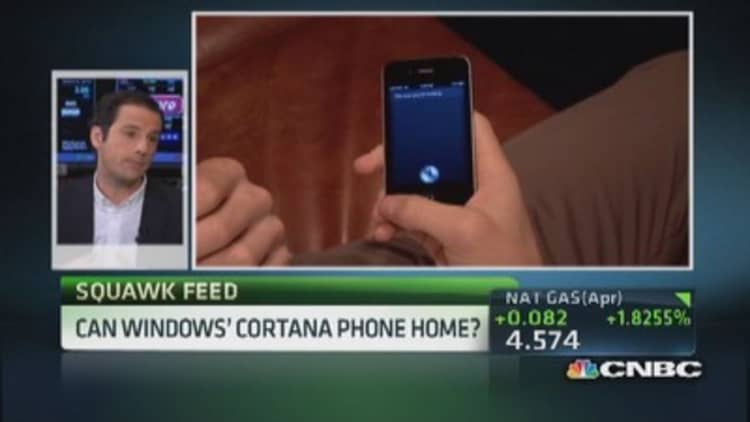We always talk about desktop and mobile usage when it comes to technology, but there is a third place: the car. Cars are the battleground for the tech companies.
Cars are a place where Americans spend an enormous amount of time in need of information and entertainment yet are unable to interact with a computer or mobile through traditional interfaces. Last year, 76 percent of working Americans commuted alone by car. Any many of these commutes are long due to congestion and traffic on highways and in cities. And so for 76 percent of Americans, they are unable to access information in a convenient or safe manner for a significant part of their days, often when they want it the most necessary times — the beginning or the end of the day.
This explains why Google bought Waze, Pandora continues to focus on in-car integrations, and we learned just last week that Microsoft is building a voice agent called "Cortana" into the new version of it's mobile OS and Apple is building an in-car version of iOS called "Carplay."
(Read more: WhatsApp? Google executive disses Facebook deal)
These integrations will by and large take two flavors: complete car integrations like Apple just announced and easier voice interfaces on mobile phones. Siri and Cortana fall into this secondary category. Voice interfaces may be useful in many places, but to my mind, in cars, they are far and away the most useful. How can you safely send a Whatsapp message or a tweet in a car? These are lost opportunities to engage users for Facebook and Twitter.
And so, if you combine voice interfaces with services people want in cars, such as traffic information and music, you start to get a vision of what the next platform battle could look like. The next platform has four wheels.
(Read more: The next thing you'll pay for online: Your privacy)

These services will get in your car via new sales, which run at roughly 15 million a year, but more importantly via the aftermarket and mobile phones with suction cups. Remember GPS units? Everyone bought stand-alone units, then they were built into cars, then people just started using their phones because Google Maps and Waze were better and more frequently updated.
The one surprise could be Nest and competitors like Nest. There's nothing to say that a new generation of cheap simple hardware devices, likely built on Android, couldn't come with a suction cup and lighter power cord for under $100. Look, for reference, at how Google just solved the TV problem with a $29 Chromecast stick.
(Read more: Your apps may be spying on you)
Either way, we should start thinking about cars like we think about mobile. The major online service players already are! And just like investors asked, "Is this company prepared for the big shift to mobile," to a lesser extent they could now ask "what's their car strategy?"
—By Jon Steinberg
Jon Steinberg is the president & chief operating officer of BuzzFeed and is responsible for all business management, company operations, finance, and social advertising operations. Follow him on Twitter @jonsteinberg.
Disclosure: Google, Facebook, and Twitter are BuzzFeed business partners. Microsoft is a BuzzFeed advertiser.

